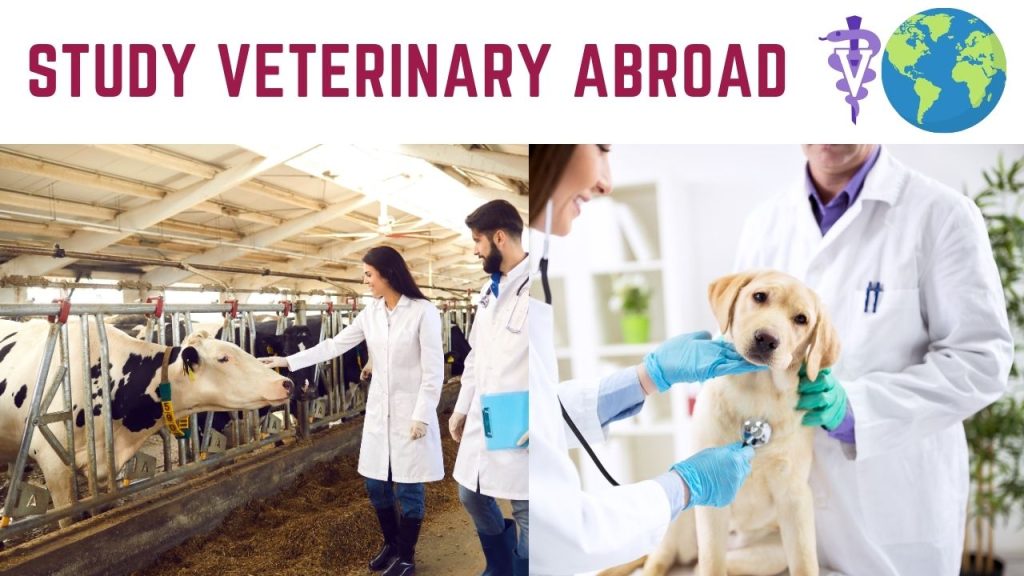
Study Veterinary Abroad 🌍🐾
Earn a globally recognized veterinary degree in English at top international universities. With hands-on clinical training, affordable tuition, and worldwide career options, studying veterinary abroad is the perfect path for future animal health professionals!
Study Veterinary Abroad
Pursuing a veterinary degree abroad is a life-changing opportunity for students passionate about animal health and care. With globally recognized programs, English-taught courses, and hands-on clinical training, studying veterinary medicine overseas opens doors to a rewarding and international career.
✅ Top Veterinary Universities Worldwide
From Europe to Asia and the Americas, there are many prestigious veterinary schools offering internationally accredited programs. Popular destinations include Hungary, Poland, Italy, Slovakia, and the UK. Institutions such as the University of Veterinary Medicine Budapest, Warsaw University of Life Sciences, and the University of Bologna are well-regarded for their academic excellence.
✅ Globally Recognized Degrees
Veterinary degrees from accredited international universities are recognized across the EU, UK, US, Canada, and other major countries. Graduates can apply for licensing exams like NAVLE (North America), RCVS (UK), or national board exams, ensuring wide career flexibility.
✅ English-Taught Programs
Many veterinary programs abroad are fully taught in English, especially in European countries. This makes it easier for international students to pursue their education without language barriers, while still integrating into local cultures and communities.
✅ Hands-On Clinical Training
Veterinary programs abroad offer extensive clinical experience through university hospitals, farms, and partner clinics. Students gain practical skills treating small and large animals under the supervision of experienced veterinarians.
✅ Affordable Tuition Options
Compared to studying in North America or Western Europe, many veterinary schools in Central and Eastern Europe offer quality education at lower tuition fees. Countries like Hungary, Slovakia, and Romania provide competitive tuition ranging from €7,000 to €12,000 per year.
Structure of Veterinary Programs
General Veterinary Medicine (DVM) – A 5.5 to 6-year program combining pre-clinical, clinical, and practical training. The curriculum includes anatomy, physiology, pathology, pharmacology, surgery, animal husbandry, and public health.
Internships & Clinical Rotations – Usually required in the final years, giving students direct experience with diagnosing and treating animals in real-world settings.
Admission Requirements
- High school diploma with strong grades in Biology and Chemistry
- Proof of English proficiency (IELTS/TOEFL)
- Some universities may require entrance exams or interviews
Career Prospects
Graduates can work as veterinarians in private clinics, animal hospitals, farms, wildlife centers, and research institutions. With a recognized degree and proper licensing, students can practice in the EU, UK, US, Canada, Australia, and more.
Conclusion
Studying veterinary medicine abroad offers a unique blend of academic excellence, practical training, and international exposure. For aspiring veterinarians, it’s a smart and rewarding path to a global career in animal health.





